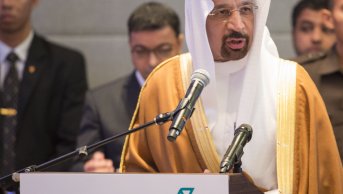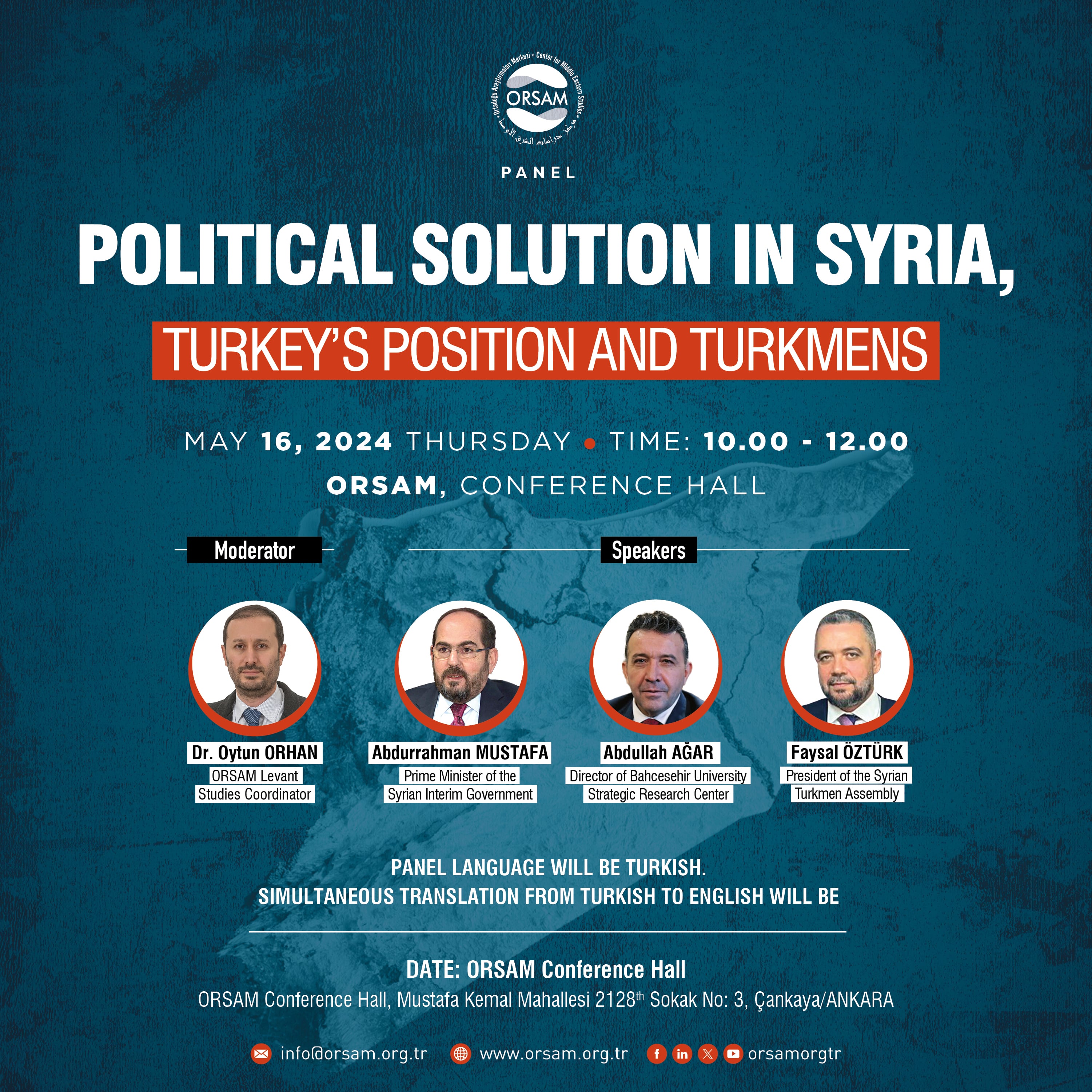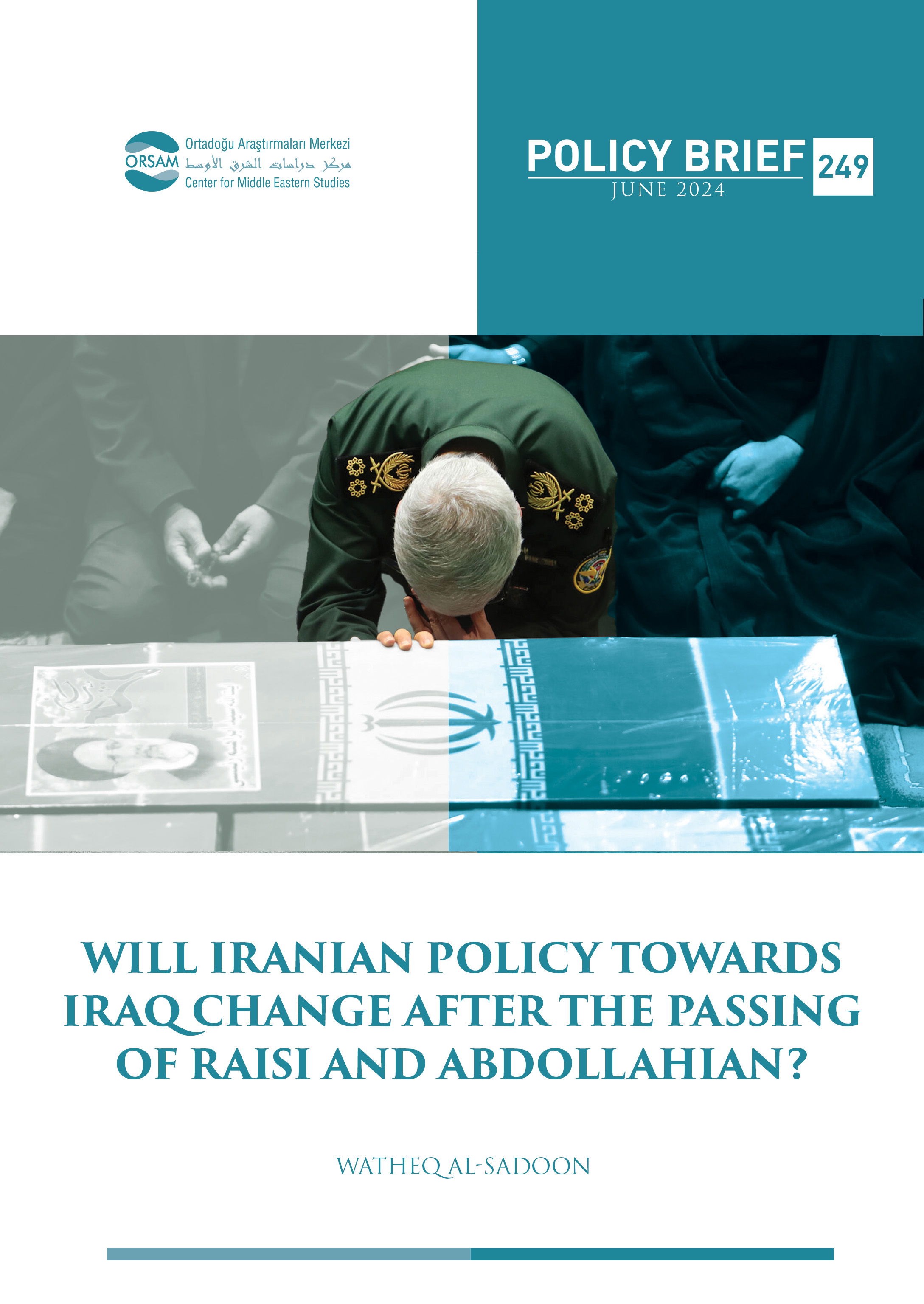Turkey-South Africa Relations: History, Identity and Change

Turkey and South Africa have an important position in world politics even though these two countries are geographically in different continents. Turkey geographically has a very important position while the Republic of South Africa is the most developed country in Africa continent. While the Republic of South Africa is a strategic center for Turkey to improve the relations with Sub-Saharan Africa region, Turkey plays a key role for the Republic of South Africa to improve its relations with both Central Asian and Eastern Europe countries. The Republic of South Africa is Turkey’s biggest commercial partner in the Sub-Saharan Africa region while Turkey is one of the biggest commercial partners of the Republic of South Asia among the Eastern Europe countries. In this study, we will analyze the relations between Turkey and the Republic of South Asia in three sections. The first section is the historical relations that the Ottoman Empire improved with this country. The second section is the relations between Turkey and the Republic of South Africa, which changed after the Cold War. The last section is the political, economic and cultural relations improved by the AKP government with the Republic of South Africa.
Ottoman Empire-South Africa Relations
The historical relations between Turkey and South Africa dates back to the 19th century. Having been brought as slaves by England and the Netherlands from South Asian countries to South Africa in the 17th and 18th centuries, Muslims became unfamiliar with their religion here day by day and this caused the emergence of many disputes about the religious issues among the Muslims. In 1862, the Ottoman Empire sent Islamic scholar Abu Bakr Effendi to this country in order to contribute to the education of Muslims in South Africa. Abu Bakr Effendi played the most significant role in improving the strong historical relations between the Ottoman Empire and this country. Abu Bakr Effendi enabled the Muslims to learn Islamic religion by opening schools here. Having prepared a manual of Islam in the local language Afrikaans by using Arabic alphabets, Abu Bakr Effendi played an important role in the development of society in religious, cultural and social terms. This manual, prepared by Abu Bakr Effendi, was translated by a Dutch academician Mia Brandel-Syrier in 1960. Abu Bakr Effendi contributed to the formation of Ottoman identity by enabling the Muslim inhabitants in the country to wear fez with the fez machines that were brought to South Africa. The Muslims in South Africa considered the Ottoman Empire as the leader of Islamic world. At this occasion, South African Muslims sent 366.551 pounds to the Ottoman Empire in 1900-1907 for Hejaz Railway construction project of the Ottoman Empire. In addition, Muslims living here showed their emotional attachment to the Ottoman Empire by organizing special birthday celebrations for the Ottoman sultans. The names of Ottoman sultans were especially quoted and mentioned in the prayers in Friday khutbas. South African Muslims provided financial support to the Ottoman army in 1911 Libya War. South African Muslims also sent 17.634 liras and 875 pounds to support the Turkish War of Independence between 1919 and 1922. The Ottoman Empire attached importance to the diplomatic relations for the protection of Muslim population in this country. For instance, the Ottoman Empire opened its first honorary consulate in 1861. Ottoman citizen, Mehmet Remzi Bey was appointed the first consul of the Ottoman Empire to Johannesburg in 1914. There was a breakdown in Turkey’s relations with the Republic of South Africa after the foundation of Turkish Republic in 1923. South African Muslims showed their disappointment especially in the face of the abolition of the caliphate in 1924. The founders of new republic entered into the process of forming a new identity in the society with the fall of the Ottoman Empire and tried to eliminate the religious, cultural and social identity of the society related to the Ottoman Empire. Kemalist elites considered the improvement of strong historical relations established between the Ottoman Empire and African continent as a threat against the future of Turkey’s new identity formation and the foreign policy was developed on Western basis. The Western-oriented foreign policy of Kemalist elites played the most important role in the breakdown of the relations with South Africa.
Turkey-Republic of South Africa Relations in Post-Cold War Period
Turkey-South Africa relations were revived with the end of Cold War in the 1990s. Nelson Mandela was released by the apartheid regime in the country in February 1990 and his 27-year prison life was over with the end of Cold War. Apartheid became the official government policy when the National Party formed a government in 1948. The first democratic elections were held in 1994 with Mandela’s release and the black people in the country won the election by far. Mandela was the first black leader to win the elections in 1994 and became the symbol of liberation struggle against the apartheid regime both in his own country and in the world. Having founded the government in 1994, Nelson Mandela played a radical role in the foreign policy of South Africa. Mandela government especially started to develop a foreign policy mechanism based on human rights.
There were also important developments in Turkish foreign policy in the 1990s. Turkish foreign policy started to turn towards a multilateral diplomacy from a unilateral one with the 8th President of Turkish Republic, Turgut Özal. Attaching great importance to the development of a commerce-focused foreign policy, Turgut Özal played a major role in improving the relations with the Republic of South Africa. The racist South Africa government opened an African Trade Center in Istanbul in 1991 and took an important step to improve the commercial and economic relations with Turkey. Both countries opened consulates in August 1991 and embassies in 22 October 1991. The United Nations and many countries in the world froze their political and economic ties with the Republic of South Africa due to rigid racist policies that the apartheid regime implemented towards the black people in the Republic of South Africa. Isolated from the world politics, the racist South Africa government aimed to weaken this international isolation by improving its relations with Turkey.
Three important issues played an important role in the deterioration of the relations between the Nelson Mandela government (1994-1999) and Turkey. The first issue the steps taken by Özal-led Turkish government to improve the political, commercial and economic relations with the racist regime in South Africa, which didn’t go down well with the Mandela government and this government decided to close the Embassy of South Africa in Ankara in reaction to this. Secondly, the Kurdish issue in Turkey caused the breakdown of bilateral relations. Nelson Mandela’s foreign policy based on human rights was influenced by his attitude towards the Kurdish issue in Turkey. The members of PKK terror organization came together with the leaders of Mandela’s party, African National Congress (ANC) in Europe and made propaganda against Turkey, which changed the view of the Mandela government about Turkey. This government also suspended all the military agreements with Turkey. Turkey put South Asia in the red list in response and found it dangerous to make military agreements with this country. Nelson Mandela also rejected Atatürk International Peace Prize given by the Turkish President Süleyman Demirel in 1991, by using the Kurdish issue in Turkey as an excuse.
PKK terrorist organization maintained its strong relations with the Mandela government and conducted effective lobby activities, which can show that Turkish foreign policy in that time was passive and ineffective. PKK terrorist organization found their fight similar to the struggle of the black people in South Africa and attached great importance to the improvement of its relations with Mandela’s party in this country. However, we can explain the important differences between PKK terrorist organization and Mandela’s party, the ANC as follows: The ANC never targeted civilians in its struggle against racism. It did acts of sabotage in important places such as telecommunication centers, TV buildings and power plants in order to end racism in the country. On the other hand, PKK terror organization especially targeted civilians in its fight and caused the death of more than 30 thousand civilians. Apartheid was officially adopted by the government in South Africa and the black people in the country never exercised political, economic and social rights. The racist regime in South Africa also banned the marriage between white and black people. Nevertheless, there was no similar implementation in Turkey’s history. Kemalist elites took steps to use Turkish nationalism rigidly during Turkey’s foundation after 1923 and prevented various religious and ethnic groups in the country from expressing themselves freely.
Turkey-South Africa Relations with AKP Regime
AKP government came into power in 2002, which started to revive the relations with South Africa. The prime minister of the time, Erdoğan was the first Turkish prime minister to visit South Africa on 3-5 March 2005. A strong progress was made in bilateral relations after this visit. Political crisis that emerged with the Mandela government was resolved by the AKP government and powerful steps were taken to improve the commercial, economic and political relations. The Prime Minister of that time, Erdoğan performed his second visit to this country on 3-5 November 2011 and aimed to maximize the bilateral relations. Deputy President of South Africa, Jacob Zuma performed an official visit to Turkey. This was the first high-level visit of South Africa to Turkey. In addition, Deputy President of South Africa, Kgalema Motlanthe performed a visit to Turkey on 24-26 May 2010 in order to improve the bilateral relations.
While Turkey’s total volume of trade was 275 million dollars in 1999; this figure decreased to 242 million dollars at the beginning of the 2000s. While the total volume of trade of with this country was 1.5 billion dollars in 2005, it almost reached 2 billion dollars in 2014.
Strategic Depth Doctrine (SDD) developed by the AKP government played a major role in deepening the relations between Turkey and South Africa. According to SDD, Turkey should use carefully its power based on its geographic position in order to increase its power in international politics. Turkey should also see the Ottoman heritage as a strategic acquisition, but not as a threat. In this context, Turkey should keep stronger its relations with the places in Africa which have the Ottoman heritage. According to SDD, Turkey is also defined as a country which has a geographic depth with Africa, Middle East, Central Asia and Western countries. Yunus Emre Turkish Cultural Center was opened in Johannesburg in 2013 and aims to revive the historic and cultural relations with South Africa. Turkey’s political stability is of vital importance in order to maintain its relations with South Africa. It is slightly possible to expect that weak coalition governments can improve strong relations with Africa. One of the important challenges against the improvement of Turkey-South Africa relations is the lack of qualified man power that will lead Turkey-South Africa relations. It is vital that young people who understand the social, economic and political dynamics of this country be raised. Turkey should not strengthen the African identity only by providing free education to thousands of African students in Turkey. It should also encourage and support Turkish students to receive education at the important universities in African countries. For example, some reputable universities of the world are in South Africa. Another important challenge is passive service of the embassies in African countries. It is important that the embassies develop a more active people oriented policy in concerning countries in order for the bilateral relations to gain depth.
This article was published in Ortadoğu Analiz journal with the title of "Turkey-South Africa Relations: History, Identity and Change”






